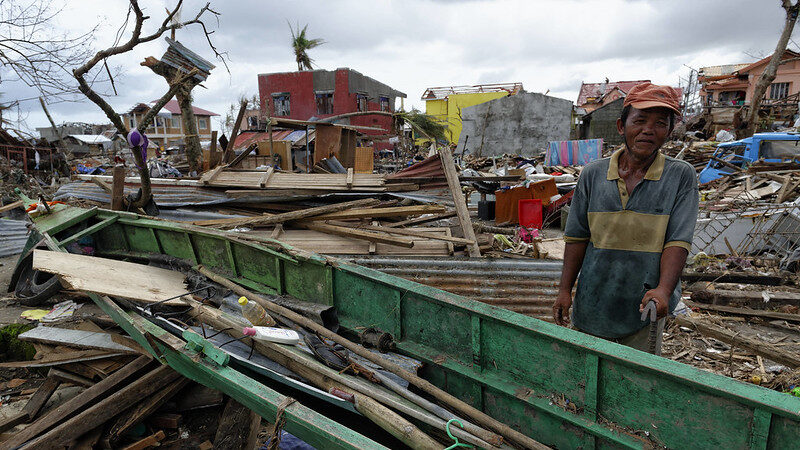A top priority for many developing countries at last month’s UN climate talks was to secure finance for “loss and damage” – the cost of major climate change impacts that can no longer be avoided, from major crop failures to homes becoming uninhabitable.
Loss and damage is already happening, trapping people in poverty and threatening their human rights. By 2030, the economic costs in developing countries are expected to reach $200–580 billion. Yet eight years after the creation of the Warsaw International Mechanism on Loss and Damage, affected communities are still getting only minimal help, mainly as post-disaster humanitarian aid.
Developing country negotiators and activists saw Cop26 as a make-or-break point for loss and damage. They pushed hard for a dedicated fund, but it was ultimately excluded from the negotiated outcome. Instead, the “Glasgow Dialogue” was established to explore ways to fund loss and damage.
The process will run through 2024, so those in urgent need may still not get any help for several years. Yet this is the first time the need for dedicated loss and damage finance has been recognised in a Cop decision. It is important to seize this opportunity.
In a recent briefing paper, my colleagues and I laid out principles for financing loss and damage that could help guide the upcoming discussions:
- Provide needs-based finance: The current climate finance target of $100 billion a year is arbitrary, not based on any scientific assessment of how much is needed. Finance for loss and damage should be provided on the basis of needs on the ground. This will require looking closely at the situation in each country and how finance should be distributed to affected communities.
- Ensure national ownership: National-level systems should be used to distribute finance – such as national disaster funds or national entities recognised by the Green Climate Fund. Country ownership could be critical in ensuring that finance reaches the populations that are most vulnerable and in need.
- Make loss and damage finance additional: Given that many severe climate change impacts are already unavoidable, and that existing climate finance flows, especially for adaptation, are known to fall short of developing countries’ needs, any dedicated loss and damage finance flows should be additional to the $100 billion per year that developed countries have already pledged – not reallocated from other equally important purposes.
- No strict liability or compensation: Finance should be provided on the basis of solidarity, while recognising that countries differ in their degree of responsibility for greenhouse gas emissions and in their capacity to respond to climate change. Requiring recipient countries to prove liability – that is, that developed countries’ emissions caused the losses and damages they are experiencing – could be very prohibitively difficult and acrimonious. However, youth, indigenous communities or other parties should still be free to file lawsuits as they deem appropriate.
- Recognise the urgency of loss and damage: Vulnerable communities are already facing major climate change impacts, and they need finance as soon as possible. This means new approaches will be needed to enable finance to flow more quickly. And to ensure that communities aren’t left without support until 2024, countries could follow Scotland’s example and provide finance directly much sooner.
Tangible progress on loss and damage finance is an urgent humanitarian priority. It is also essential to safeguard the perceived legitimacy of the negotiations and protect vulnerable countries’ development gains. By following these principles, climate negotiators can break the stalemate on loss and damage and provide much-needed support to the people on the front lines of climate change.
Zoha Shawoo is an associate scientist at Stockholm Environment Institute.
